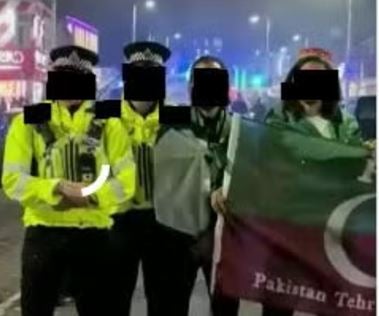
Update: On 21 November Essex Police said it had dropped its investigation into Allison Pearson’s tweet.
The force said: “We investigate crimes reported to us without fear or favour.
“We’re sometimes faced with allegations of crime where people have strong opposing views.
“That’s why we work so hard to remain impartial and to investigate allegations, regardless of where they might lead.”
Original comment by media law expert David Banks: Before Essex Police embarked on their journey to knock on Allison Pearson’s door they might have been well-advised to check on the number of successful prosecutions of journalists for inciting racial hatred.
I am not aware of any, of what we might call mainstream journalists. Social media blowhards, sure, members of extremist organisations, yes, some of them. National newspaper columnists – I’m scratching my head very hard to find one.
And that is a good thing, because having police officers turn up at a journalist’s door for something they wrote is a bad thing in a society that values freedom of speech.
The need to protect freedom of speech means there is a high bar for prosecution under the Public Order Act for inciting racial hatred, and any such prosecution has to be authorised by the Attorney General – who must be absolutely delighted at the prospect of this hot potato heading towards his desk.
So let’s look at what Allison Pearson wrote and try to see whether or not this gets anywhere close to getting over that high bar.
Pearson was not told what post prompted the complaint to police. But The Guardian has spoken to the alleged complainant and Press Gazette has posted a screengrab of the message which appears to be at the root of the issue, taken from a website which archives web pages.
The words which appear to form the crux of the complaint are “Jew haters” which Pearson used in a post on X about a group of police officers posing with a group of demonstrators. This she compared negatively with the Met Police’s refusal to pose with a group supporting British Friends of Israel. It would seem that in doing this she had mistaken a group of people demonstrating in support of a Pakistani political party with pro-Palestinian protesters, and this is apparently why the post was deleted.
The law says an offence is committed, as the Crown Prosecution Service puts it, if “someone says or does something which is threatening, abusive or insulting, and the person either intends to stir up racial hatred, or make it likely that racial hatred will be stirred up.”
I don’t think there is the remotest possibility of showing that Pearson had any intent to stir up racial hatred, so to prove this offence the police and CPS are relying on that second phrase “make it likely that racial hatred” will be stirred up.
Let’s go back to Pearson’s words. In her post she made no reference to race, colour, nationality or ethnic origin. It would seem she thought they were pro-Palestinian protesters, and as we know from the demonstrations that have taken place across the UK concerning Gaza, the crowds have included people from many different ethnic backgrounds. It is, in my view, obvious that her tweet was not rooted in any reference to racial or ethnic identity, but that she, mistakenly it would seem, thought they were part of the pro-Palestine demonstrations and she had reportedly confused the flag they were holding with that of Hamas. Those mistakes, if she did make them, do not in any way make this a racial incident.
I think the police ought to have spent more time considering the material that had been reported to them and whether its content could bear any sort of criminal meaning. Before they turned up to knock on Allison Pearson’s door, a view should have been sought from the CPS and from the AG’s office as to the wisdom of this course of action.
The worrying thing is the chilling effect such police action can have.
Allison Pearson is a seasoned journalist and has the backing of the Telegraph, but what of those on smaller titles, without recourse to expensive lawyers and unable to muster the sort of support the Telegraph can call upon? The effect of action like this is to discourage columnists and editors from being outspoken for fear that they will open the door to the police who want to talk to them about something they wrote.
Without even bringing a prosecution the police have lowered the bar of how we define incitement, and that is something we should all worry about.
Email pged@pressgazette.co.uk to point out mistakes, provide story tips or send in a letter for publication on our "Letters Page" blog
